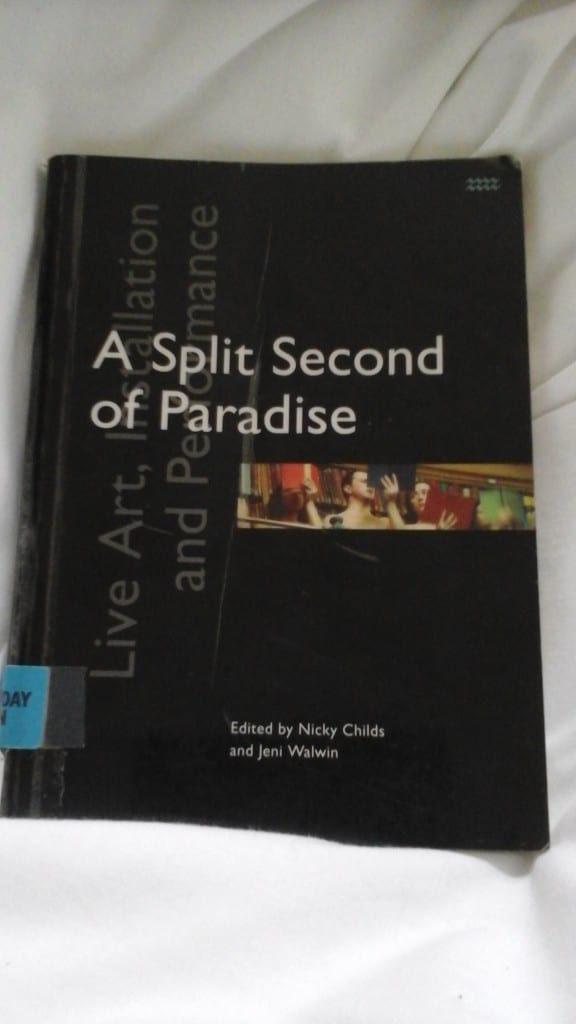For a performer like English, the space is her show – which can be a rather difficult concept to sell to someone. (Levy, 1998, 44).
In this blog post I am going to be talking about Rose English and my response to her work and the writings about her by Deborah Levy in the book ‘A Split Second of Paradise: Live Art, Installations and Performance’. Thoughts to the other chapters of this book are on, or are going to shortly be on, the first blog post in this series, linked at the end of the post.
Although English has produced site specific performance, such as Quadrille (1975), Berlin (1976) and Mounting (1977), I am more interested as her work as a performer then on her specific performances. She is described as a “tremendous physical presence to behold, she understands that the empty conceptual space of the theatre can be a place where we are caught in the adventure of ‘looking at the mystery of looking’” (Levy, 1998, 41). In her non site specific productions she highlight the fact that she is in a theatre. This inspires me because the room we are preforming in is now a performance space inside a theatre, something that I think should not be ignored. Our piece is about the history of the room and it modern day history it still a part of that.
“Looking at the mystery of looking” is a rather telling phrase the Levy has highlighted here. In reality it is the essence of theatre as we know it today. Our word theatre comes for the Greek word meaning ‘a place of viewing’. English highlights the concept in her work, for example performing as a showgirl or having audience interaction. It is a concept I believe we should highlight in our work also. We have already done something like this by having the last ‘episode’ of our piece being that of Cody’s story of performing in the space, in which he tells ( though a recording via headphones) that the audience are standing in the performance space and that we are standing in the audiences. However, I still feel more could be done with this concept and, perhaps, the answer lies in the sense of voyeurism we are trying to create in this performance.
Returning to the opening quote –
“For a performer like English, the space is her show – which can be a rather difficult concept to sell to someone” (Levy, 1998, 44).
The reason why I opened the post with this quote is because this has been, without knowing it, one of the main difficult with creating our piece. We do not want this performance to be about us, as people, performing. We are simply a technique to show the audience the room’s history. We have tried to accomplish this by giving the audience headphones with us speaking on rather than us doing so in the performance to create both physical and mental distance. We have also tried to keep the movements a simple as possible to convey to the audience that we are simple performing situations, not characters. In the same way, in the opening video we have labelled ourselves as researches. The audience attention should be on the room and not us, after all it is the room we ware ‘selling’.
Work Cited.
Levy, Deborah. (1998) The Eros of Rose. The Work of Rose English. In: Nicky Childs and Jeni Walwin (eds.) A Spilt Second of Paradise: Live Art, Installations and Performances. London: Rivers Oram Press, 41-53.
First blog post in the series:
